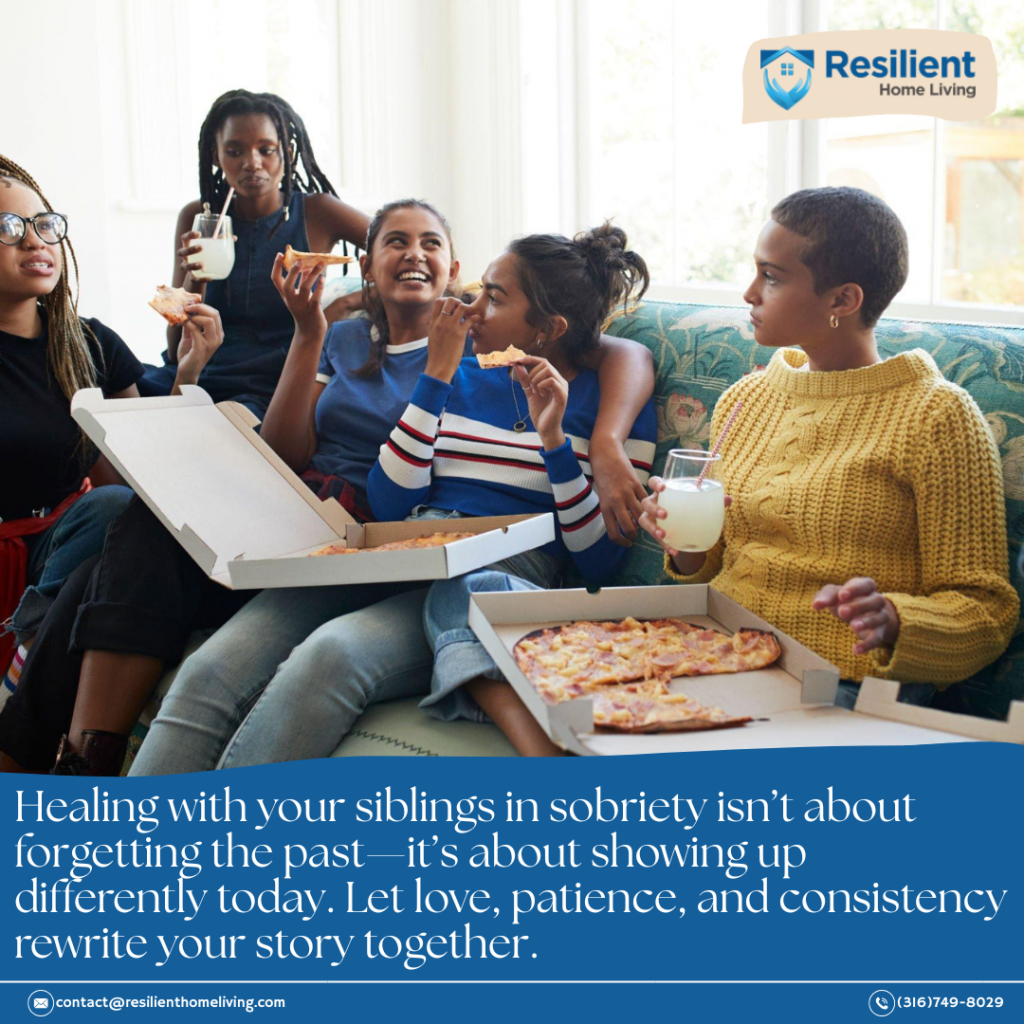Introduction: The Quiet Bonds That Matter Most
Sibling relationships are some of the most profound yet complicated connections we’ll ever have. They’re the people who often know our history better than anyone else—our childhood joys, our growing pains, and sometimes, our worst mistakes.
When addiction enters the picture, those relationships can become strained, distant, or even fractured. But sobriety offers something powerful: a chance to rebuild those bonds on honesty, empathy, and mutual respect.
Healing sibling relationships in recovery isn’t about erasing the past; it’s about showing up differently in the present—and allowing time, consistency, and vulnerability to do their work.
1. Understanding the Impact of Addiction on Sibling Bonds
Addiction doesn’t happen in isolation—it affects entire families. Siblings may feel angry, betrayed, or hurt by behaviors from the past. Some might have taken on a “caretaker” role, while others distanced themselves to protect their peace.
In early recovery, it’s important to acknowledge that your siblings may have their own emotional wounds. Healing begins when you recognize that their pain is valid, too.
Instead of expecting immediate forgiveness, focus on empathy. Try saying,
“I understand how my actions may have hurt you, and I want to rebuild our relationship when you’re ready.”
This approach opens the door for dialogue rather than defensiveness.
2. The Power of Accountability
Trust is rebuilt through actions, not promises. Being accountable—showing up when you say you will, keeping your commitments, and being emotionally present—goes a long way in repairing sibling trust.
Recovery teaches consistency, and consistency rebuilds faith. Your siblings need to see the new you not just through words, but through steady, small acts that show your growth.
Accountability also means owning up to the past without drowning in guilt. Remember, guilt can keep you stuck; accountability moves you forward.
3. Reconnecting Through Shared Memories
One of the most natural ways to begin reconnecting is by revisiting the positive parts of your shared past. Look through old photos together, reminisce about funny family moments, or recreate a childhood tradition.
Shared laughter can be a powerful bridge between old pain and new beginnings—it reminds both of you that before the addiction and the distance, there was love.
Even simple gestures, like sending a text that says, “Remember when we used to…” can soften walls and start a gentle re-entry into closeness.
4. Setting Boundaries Without Walls
In rebuilding family relationships, healthy boundaries are essential. They protect your recovery and create space for honest connection.
Boundaries might mean limiting certain types of conversations, refusing to engage in guilt-driven dynamics, or taking time to cool off after a disagreement.
Boundaries aren’t rejection—they’re respect. By practicing them, you teach your siblings how to engage with you in a way that’s healthy for everyone.
You can say something like:
“I care about you deeply, and I want us to have a healthy relationship. I’m working on keeping things positive and grounded, so I may need to step back when things get tense.”
5. Letting Go of Old Roles
In many families, people get stuck in roles—“the responsible one,” “the rebel,” “the peacemaker.” Addiction often amplifies those patterns, and even after sobriety, it’s easy to fall back into them.
Part of healing means letting your siblings see that you’re no longer defined by your old identity. You’re not the same person who made those mistakes, even if they still see you that way.
Show them, with patience and humility, that you’re growing. Allow them the space to adjust to that reality at their own pace.
6. When Reconnection Takes Time
Some siblings may not be ready to reconnect—and that’s okay. Healing doesn’t happen on a shared timeline. What matters most is continuing your recovery journey, even if reconciliation isn’t immediate.
Keep the door open, send kindness their way, and trust that with time and consistency, relationships can heal in unexpected ways.
Sometimes, the best apology is your continued sobriety.
7. Creating New Memories Together
As trust rebuilds, focus on creating new memories that reflect who you are today. Plan a weekend together, start a shared hobby, or volunteer side by side.
New experiences help overwrite painful memories with moments of connection and authenticity. They remind both you and your sibling that your relationship can grow stronger than ever before.
8. Self-Forgiveness and Compassion
It’s impossible to rebuild healthy relationships without self-forgiveness. You can’t pour love from a cup filled with shame.
Give yourself permission to be human—to have stumbled and to have learned. Healing with your siblings begins when you offer yourself the same grace you hope to receive from them.
Conclusion: Healing Together, Growing Forward
Reconnecting with siblings in sobriety isn’t a straight line—it’s a winding path filled with humility, growth, and hope. It may take patience and understanding, but the reward is deeper than reconciliation—it’s rediscovering family, love, and shared humanity.
Every healed relationship is proof that sobriety isn’t just about living substance-free—it’s about learning how to love and be loved again.

